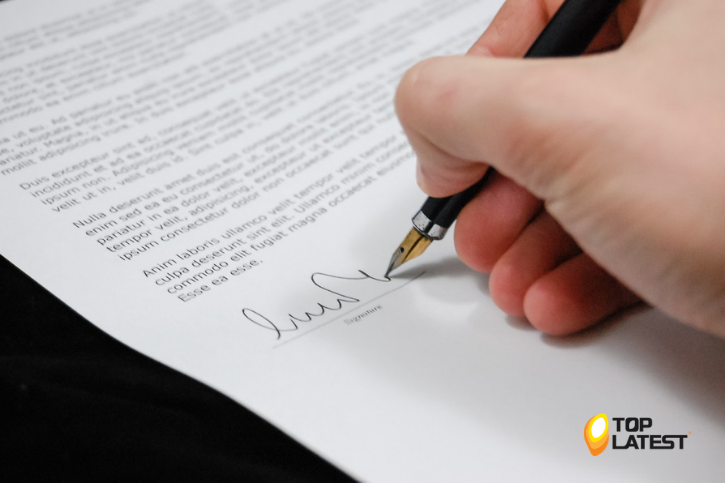If you are new to Dubai and have recently finalized renting a house for your stay, then you might be tempted to sign the tenancy contract agreement in haste. But that is not a good idea. Instead, spend some time making some efforts to understand the Dubai landlord and tenant law. It will enable you to acquaint yourself with your rights and responsibilities as a tenant. Moreover, you will then get to know about the obligations of your landlord and the relevant regulations.
If you do not care to know the existing laws and regulations in the implied context, you might come across some unwanted situations during your stay that might cause you a headache and, at times, land you in trouble too.
What is a Tenancy Contract?
Before the landlord hands you over the keys to the property, both of you have to enter into a rental agreement, called the tenancy contract. Dubai property rental laws govern it.
A tenancy contract is a legally binding agreement between you and your landlord. The agreement states all the terms and conditions of the lease, including both parties’ expectations and requirements.
As the contract includes all terms and conditions, it prevents disputes and misunderstandings between parties during the contract period.
The contract pertains to the existing Dubai real estate laws and regulations.
Dubai Tenancy Law
In Dubai, the Real Estate Regulatory Agency (RERA) regulates the relationship between tenants and landlords under the Dubai Rental Law No 26 of 2007 (and amendments from Dubai rental law no 33 of 2008).
The law defines landlords’ and tenants’ roles and responsibilities to prevent any dispute and misunderstanding.
The Rent Disputes Settlement Centre (RDSC), established under Decree No. 26 of 2013, examines and resolves all matters related to rental disputes in Dubai, and Decree No. 43 of 2013 administers all of the issues related to rent increases.
You can also regard the RERA as the rent regulatory authority in Dubai.
What are Landlord and Tenant Rights?
In Dubai, the RERA has set definitive laws to govern the landlord’s relationship and the tenant. RERA has outlined the respective rights and responsibilities to have no or minimal disputes and misunderstandings between them.
Landlord’s Rights
- Should hand over the property to the tenant in good, livable condition, as stated in the contract. However, in rare cases, if the tenant agrees to lease an unfinished property and complete it himself, then who is liable for the completion costs is specified in Article 15.
- Responsible for all property maintenance work and repairs are necessary during the term of the contract, unless the two parties agree otherwise, according to Article 16.
- Should not make any changes or renovations to the property that can interfere in the tenant’s full use. However, if the tenant agrees to the landlord’s renovation request, the landlord may proceed, as per Article 17.
Tenant’s Rights
- Should obtain the landlord’s permission if he wants to undertake any renovations to the property. He also should get the necessary licenses from officials, if needed, as per Article 19.
- Suppose the landlord refuses to return the refundable security deposit the tenant pays when renting the property, in part or full, due deductions for any damage to the property. In that case, the tenant can approach the RERA rent dispute committee to resolve the issue, as per Article 20.
- Must return the property to the landlord in the same condition as when signing the contract. The landlord will exempt minor damages beyond the tenant’s control. However, if any disagreement between the two parties arises, the dispute committee can hear and resolve the matter, as specified in Article 21.
- Responsible for settling all charges and taxes for the use of the property, as per government regulations. And any fees or taxes for any sub-lease, unless agreed otherwise in the tenancy contract, as specified in Article 22.
- Should not remove any leasehold improvements, if he made any, upon vacating and returning possession of the property to the landlord, as stated in Article 23.
What Should the Tenancy Contract Include?
Typically, a tenancy contract in Dubai should include the following details:
- Name and contact details of the landlord
- name and contact details of the tenant
- Property information– full address, building name, location, and size
- Plot number
- DEWA premise number
- Rent amount
- Term of contract
- Date of the contract
- Security deposit amount
- Method of payment
- Landlords serving a vacating notice to tenant Dubai
Which Documents are Necessary for a Tenancy Contract?
As per the existing rules and regulations, you need to keep the following documents ready before you enter into a tenancy contract:
- Passport copy
- Residence Visa copy
- Emirates ID copy
- Security deposit cheque (usually, 5% of the annual rental amount for unfurnished, or 10% for furnished properties)
- Agency fee cheque (Usually 5% of the annual rental amount)
Conclusion
By now, you must have understood why you should make efforts to understand the tenancy laws in Dubai before you eventually enter into a renting agreement. Therefore, make sure you go through the relevant laws and keep the necessary documents ready beforehand.

